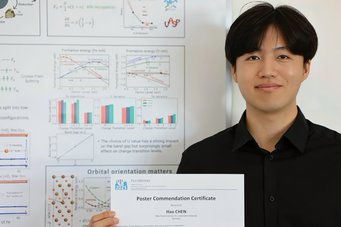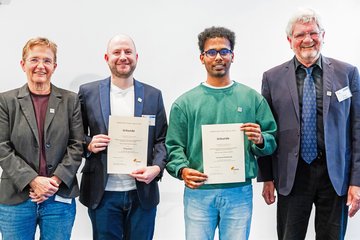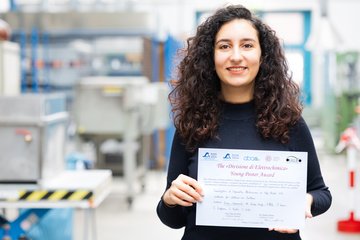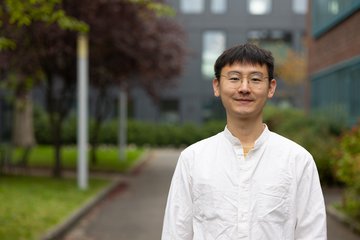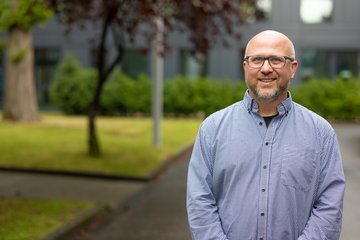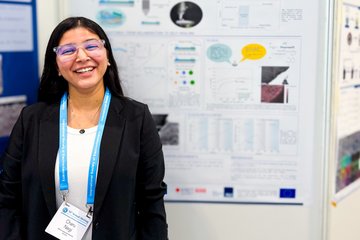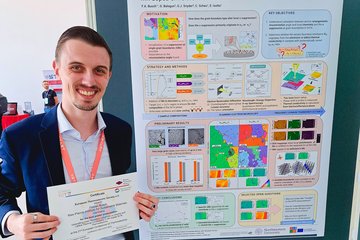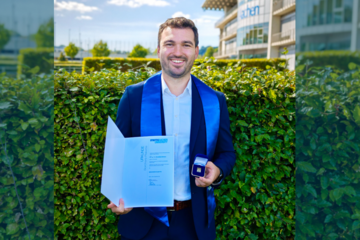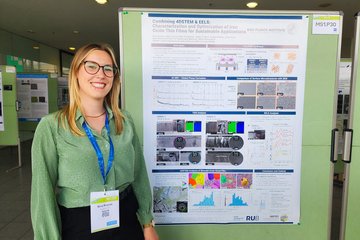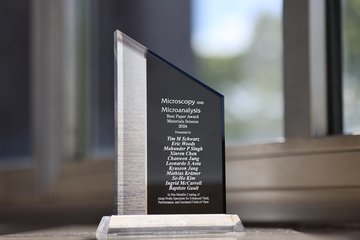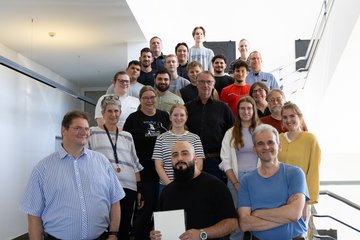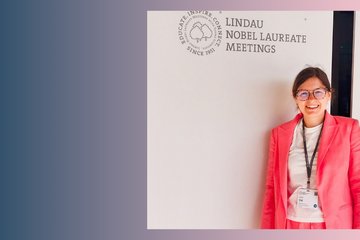Best Poster Commendation for Hao Chen
Simulations on the influence of defects on iron oxide reduction

Hao Chen, PhD researcher at the Max Planck Institute for Sustainable Materials (MPI-SusMat), has been awarded a Poster Commendation at the Psi-k Conference in Lausanne, Switzerland. His poster, ranked among the best 8% of contributions, presented new insights into how defects influence the physics and stability of iron oxides. These findings pave the way for more controlled reduction experiments and more reliable machine learning predictions.
“That was my first poster presented at a conference during my PhD studies, and I’m super happy to receive this commendation,” says Hao Chen. Working in the Computational Materials Design department, he investigates how defects affect the reduction of iron oxides – a process at the core of steelmaking. While industry and research are developing CO2-free pathways to reduce iron ore, such as using hydrogen instead of fossil fuels, a fundamental understanding of the electronic states during the stepwise reduction is still missing.
The reduction of iron oxides to metallic iron proceeds in four phases: hematite (Fe2O3) → magnetite (Fe3O4) → wüstite (FeO) → ferrite (α-Fe). A key challenge lies in understanding how ions rearrange during these transitions and how defects influence this process. Using density functional theory (DFT) calculations, Chen demonstrated a close correlation between Fe2+ ions and defect sites in hematite. “We asked ourselves which type of defect is most favourable for the reduction process. Our results are now directly applicable to the transition from hematite to magnetite, and we are able to identify the ground state configurations,” explains Chen. This approach also allowed him to determine reliable defect formation energies and revealed distinct orbital configurations, showing a strong coupling between orbital orientation and lattice distortions. These insights advance the fundamental understanding of defect physics in iron oxides, which is essential for modeling and interpreting iron reduction.
The Psi-k Conference is the world’s largest event on electronic-structure research. It brings together experts working on theory, algorithms, and computer codes to predict and design material properties. 762 posters were presented with commendations awarded to the top 8%.
